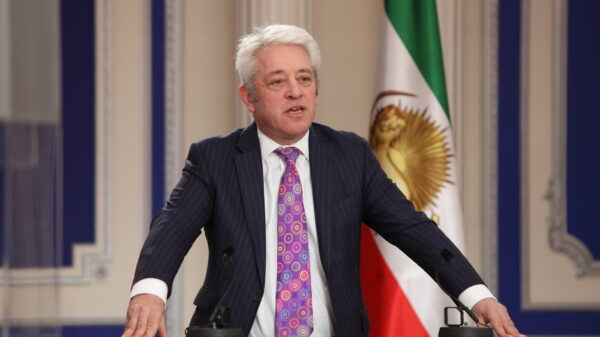
 BBC
BBCNearly 400,000 private prescriptions for ADHD medication were issued last year as patients sought to bypass lengthy NHS waiting lists, with people spending millions of pounds on treatment.
Figures obtained by the BBC show the number of prescriptions for drugs rose from 28,439 in 2018-19 to 397,552 in 2023-24.
One family from West Yorkshire said they had chosen to re-mortgage their home to meet the costs, with research suggesting backlogs for ADHD assessments could take up to eight years to clear in some parts of the UK.
The Department of Health and Social Care said it was working to “bring waiting lists under control”, adding that the NHS had recently launched an “ADHD taskforce” to help tackle the delays.
ADHD (attention deficit hyperactivity disorder) is a condition that affects people’s behaviour – making it harder to concentrate and manage time.
Acting impulsively and taking risks can also be an issue and it is also associated with serious mental health illnesses such as depression and anxiety.
According to the National Institute for Health and Care Excellence, between 3-4% of adults in the UK have ADHD, while the global prevalence of the condition among children is estimated to be about 5%.
Last year a BBC investigation found more than 196,000 adults were on NHS waiting lists seeking a diagnosis, with many areas of the UK recording waiting times of at least eight years.


Among those to have taken action to side-step the lengthy wait are Jannine and Chris from Halifax.
The couple were told it could take up to two years before their children, Oliver, 13, and Sophie, eight, would be seen by the NHS in West Yorkshire.
“Oliver’s ADHD was debilitating,” said Jannine.
“For both children, ADHD manifested itself through anxiety, being unable to focus on their education, and emotional dysregulation.
“Oliver couldn’t face going to school because of the anxiety. Sophie, especially on a Monday, would come home just completely burnt out. We were just banging our heads against the wall with the NHS.”
After making the decision to go private, the couple paid more than £8,000 for diagnoses for both children and pay a further £500 a month for their medication.
‘Financial strain’
The couple said to fund the treatment they had switched to an interest-only mortgage.
“It felt like we had no option,” said Chris.
“Finding the money each month is just more stress when you’re already dealing with the challenges of ADHD.”
“There’s a shelf life on how long we can afford to do this because it’s definitely a financial strain,” added Jannine.
Their son, Oliver, said: “When I didn’t have my medication, it was difficult to concentrate and focus, and I used to get confused easily.
“But I’ve been a lot better since I’ve started taking my medication, and in the last four months, I’ve started to learn to play the guitar.”


Figures obtained by the BBC via a Freedom of Information request to the NHS Business Services Authority show that in 2023-24 the equivalent of 525,000 packets of controlled ADHD medication were prescribed privately to an estimated 30,000 patients.
The most commonly prescribed drug, methylphenidate, can cost private patients between £15 and £50 per month. Whilst lisdexamfetamine and dexamfetamine can cost patients between £50 and £130 per month.


Some families though say the cost of private medication is simply unaffordable.
“We would not have been able to afford the monthly cost,” said Jenny Barker from Pontefract, who has been trying to get her 21-year-old daughter Nicole an NHS prescription for ADHD drugs for the past seven years.
“If we’d gone private and I’m honest it probably would have meant we’d have had to go down the route of going to food banks, because we’d have had to make cuts to other areas of the household budget,” she said.
“The system is broken and incredibly unfair.”
Graham, also from West Yorkshire, said he had been paying less than £100 a month for his ADHD medication since going private four months ago after being diagnosed with severe depression and anxiety, which left him unable to work.
He said he thought rising awareness of the condition as well as an increase in online content may be driving people to seek private help.
Videos on YouTube and TikTok claiming to help people self-diagnose have racked up billions of views, while celebrities, such as TV presenter Ant McPartlin, singer Jessie J and comedian Johnny Vegas, have shared details of their diagnoses recently.
“It’s been a good investment, but I think a lot of people watch YouTube videos for ADHD medication which describe a sudden total calming and quietening of the brain and pin their hopes on that happening to them,” he said.
“My experience and from talking to other people is that the effects are far more subtle than that.”


Emily Dove, who also has ADHD, works as a private assistant psychologist in Leeds.
“We’re seeing more and more private referrals where people are just absolutely desperate,” she said.
“People cannot wait the amount of time they’re being told they’re going to have to wait with the NHS, and they just don’t see any other option than to get the money together to pay for a private assessment.”
Ms Dove was diagnosed with ADHD in her early 30s and said women and girls in particular struggled to get a diagnosis via the NHS.
“I remember going to see my GP and him telling me that ADHD was a trend and that everybody thought they had it. That was hugely invalidating. The stereotype for ADHD is still overactive, excitable boys running around.
“I think it’s just cheaper for the NHS to diagnose people with anxiety and depression, which are often the by-products of ADHD, rather than to properly assess and diagnose people for ADHD.”
‘Broken NHS’
An NHS spokesperson said: “Patients are waiting too long for an ADHD diagnosis which is why the NHS has launched an independent expert taskforce which will look at the root causes of the issue across a range of sectors, as well as help the health service manage the rising number of ADHD referrals.”
A Department of Health and Social Care spokesperson said “Lord Darzi’s report laid out how severe the delays have become in our broken NHS for people waiting for an attention deficit hyperactivity disorder (ADHD) diagnosis.
“This government will get the NHS back on its feet and bring waiting lists under control, so people do not feel they have to turn to the private sector for treatment.
“NHS England’s ADHD taskforce is also bringing together expertise from the NHS, the education sector and justice system, to better understand the challenges affecting those with ADHD.”
Listen to highlights from West Yorkshire on BBC Sounds, catch up with the latest episode of Look North or tell us a story you think we should be covering here.
































